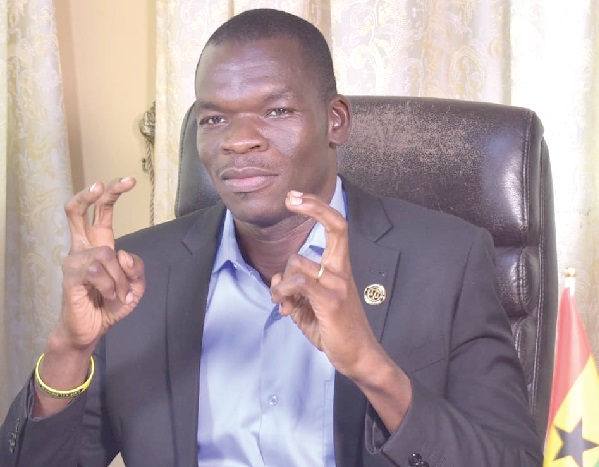
Association of the deaf calls for inclusive reproductive health service
The Ghana National Association of the Deaf (GNAD) has called on the government to, as a matter of urgency, come up with enforceable policies and standards that will improve and address barriers to sex and reproductive health services for the deaf community.
According to the association, the provision of sex education in accessible format through the inclusion of sign language interpreters in the electronic media and other platforms was critical to ensuring full access to quality sex education and proper menstrual hygiene management.
The Executive Director of GNAD, Mr Juventus Duorinaah, in a press statement marking International Menstrual Hygiene Day, indicated that deaf adolescent girls lacked the ability to manage their menstrual health with adequate knowledge, safety and dignity without stigma because they did not have adequate sex education.
“Adolescent deaf girls may have greater challenges managing their menstruation than their hearing counterparts due to communication barriers with their hearing parents,” he said.
Importance
Mr Duorinaah said deaf women and girls had the same menstrual health needs as hearing persons, adding that mainstream healthcare information and services, however, might not be accessible to deaf women and girls, making it necessary for additional and specialised support services to enable deaf girls to get access to quality information and services regarding menstruation and other health-related issues.
He, therefore, emphasised how important it was to ensure inclusive sex education, because the level of knowledge on menstruation and its associated changes had a greater impact on how girls reacted to their menstrual experiences.
He stressed that girls who had good knowledge on menstrual issues were able to engage in safer and more hygienic menstrual practices.
“Inclusive awareness of menstruation and hygienic menstrual practices could help girls within the deaf community reduce reproductive tract infections and other associated diseases,” the GNAD Executive Director said, adding: “It could also improve school attendance and better education outcomes for deaf girls, since they will not stay away from schools as a result of poor menstrual management.”
Interventions, reforms
According to the Executive Director, GNAD had, over the years, invested significantly in training and certifying Ghanaian sign language interpreters through various projects, including a Sign Language programme at the University of Cape Coast and the training of health workers in basic sign language.
Despite GNAD’s efforts to find solutions to the communication barrier that prevented the deaf community from getting access to vital health service information, Mr Duorinaah said there was the need for the government to improve on universal coverage of sex and reproductive health services through collaboration with the association to ensure that services designed were deaf-friendly.
“We call on the Ghana Health Service to improve universal coverage of sex and reproductive health services through collaboration with the association to ensure that services designed are deaf-friendly,” he stated.
Mr Duorinaah further called on Parliament and its Select Committee on Health to make reforms within the National Health Insurance Scheme (NHIS) to ensure that sign language services were captured in the NHIS to ease the cost barrier that hindered access to sex and reproductive health services for the deaf community.
GNAD
The GNAD is the national umbrella body of deaf people in Ghana, serving as the mouthpiece for deaf people and working to ensure that every deaf person in Ghana enjoys the right to a life of dignity.
It seeks to achieve an active and productive deaf community with access to education and information, and economic activities that can sustain and maintain quality and security of life.
